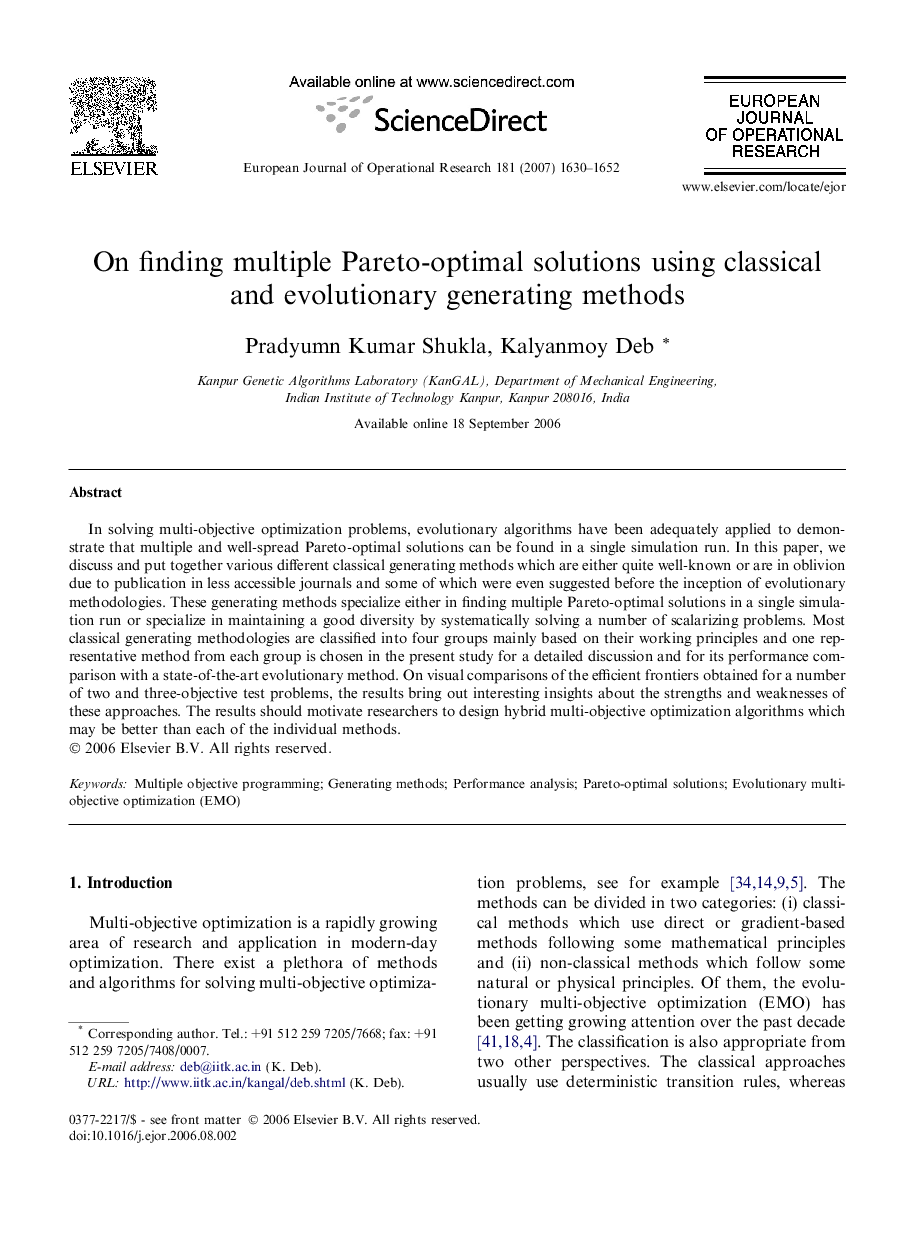| Article ID | Journal | Published Year | Pages | File Type |
|---|---|---|---|---|
| 481943 | European Journal of Operational Research | 2007 | 23 Pages |
In solving multi-objective optimization problems, evolutionary algorithms have been adequately applied to demonstrate that multiple and well-spread Pareto-optimal solutions can be found in a single simulation run. In this paper, we discuss and put together various different classical generating methods which are either quite well-known or are in oblivion due to publication in less accessible journals and some of which were even suggested before the inception of evolutionary methodologies. These generating methods specialize either in finding multiple Pareto-optimal solutions in a single simulation run or specialize in maintaining a good diversity by systematically solving a number of scalarizing problems. Most classical generating methodologies are classified into four groups mainly based on their working principles and one representative method from each group is chosen in the present study for a detailed discussion and for its performance comparison with a state-of-the-art evolutionary method. On visual comparisons of the efficient frontiers obtained for a number of two and three-objective test problems, the results bring out interesting insights about the strengths and weaknesses of these approaches. The results should motivate researchers to design hybrid multi-objective optimization algorithms which may be better than each of the individual methods.
